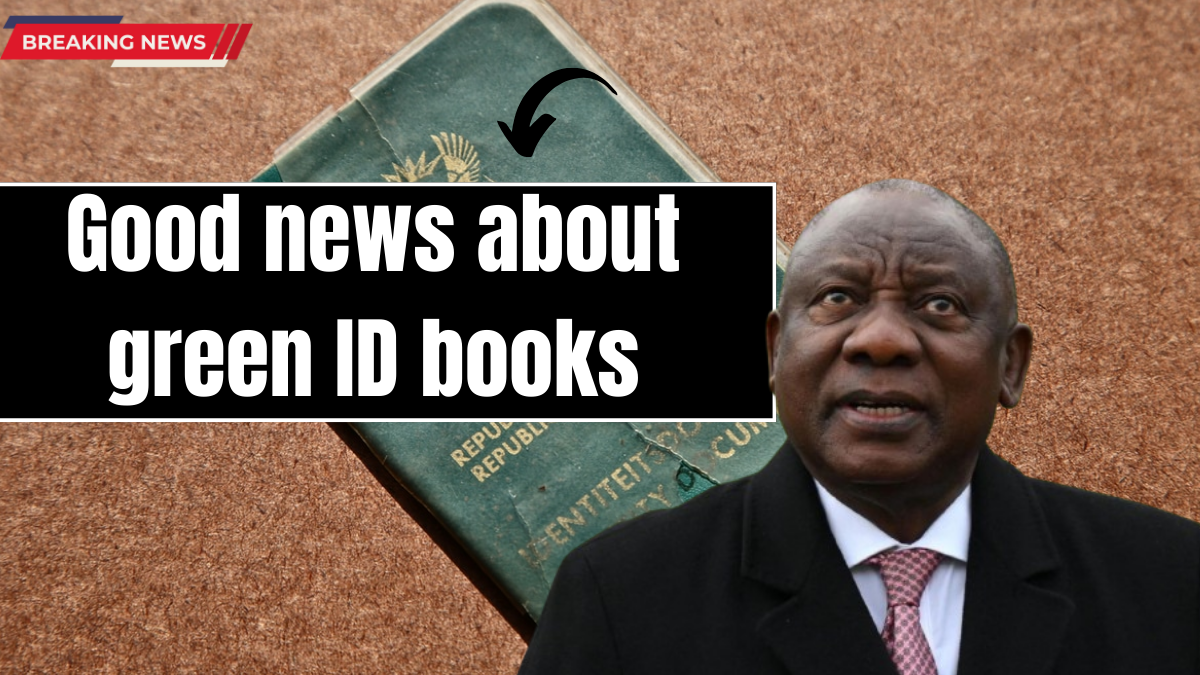The South African government has made significant strides in improving national identity verification by announcing a partnership to fast-track the rollout of smart IDs. This move comes as part of an effort to phase out the outdated green ID books that have become vulnerable to identity theft and fraud. Minister of Home Affairs, Leon Schreiber, confirmed that while the green ID book remains valid for now, its eventual invalidation will occur only once all South Africans have access to the more secure smart ID cards.

The Agreement to Transform Government Services
Home Affairs, in collaboration with the Border Management Agency (BMA), South African Revenue Service (SARS), and Government Printing Works (GPW), signed a crucial agreement aimed at digital transformation within government services. Schreiber emphasized that the goal is to integrate services across various sectors, including banking, to streamline the process of issuing smart IDs and passports.
-
Smart ID Integration with Banks:
This new partnership will expand access to smart ID services through bank branches and banking apps, making it easier for citizens to apply for and receive their smart IDs. -
Extension to Naturalised Citizens and Permanent Residents:
The agreement also paves the way for naturalised citizens and permanent residents to access smart IDs, a move previously hindered by technical issues within the Home Affairs IT system.
The Need to Replace the Green ID Book
One of the main reasons for replacing the green ID book is the growing risk of fraud and identity theft associated with it. According to Smile ID, a company specializing in identity verification and fraud detection, the green ID book has the highest fraud rate in Africa, with fraud rates 500% higher than for smart IDs. Schreiber emphasized that replacing the green ID book is a top priority due to its role as a prime target for fraudsters.
-
Smile ID’s Report on Fraud:
In its 2025 Digital Identity Fraud in Africa report, Smile ID confirmed that the green ID book was the most commonly exploited national ID in South Africa. Schreiber added, “The green ID book is insecure and a risk to South Africa. We need to get rid of it.”
Progress and Plans for Smart ID Production
The government has made impressive progress in the production of smart IDs. Schreiber noted that Home Affairs is on track to exceed its initial target for 2025.
-
Production Milestones:
Home Affairs planned to produce 2.5 million smart IDs this year but is currently set to deliver 3.6 million smart IDs, accelerating the shift to digital identification. -
Access Expansion through Bank Partnerships:
Schreiber also highlighted the importance of expanding collaboration with South African banks to streamline access to smart IDs, aligning government services with banking technology.
Home Affairs’ Strategic Vision for 2029
Schreiber revealed ambitious plans to ensure all South Africans can access smart IDs before the 2029 national and provincial elections. To meet this goal, Home Affairs is working to dramatically scale up the production and distribution of smart IDs.
-
Integration with Bank Technology:
In a keynote at the Independent Electoral Commission’s e-Voting Conference in March 2025, Schreiber stressed the need for seamless integration of Home Affairs systems with banks’ technology to improve accessibility. -
Expanding Access:
“We are moving determinedly to expand access to smart IDs to a scale never seen before,” Schreiber stated, emphasizing the department’s dedication to this initiative.
Revolutionizing Government Services
The agreement signed by Home Affairs, BMA, SARS, and GPW marks a significant turning point in how government services will be provided. The collaboration will leverage world-class technology from SARS to revamp civics and immigration services, improving efficiency and reducing fraud.
-
Introduction of Electronic Travel Authorisation (ETA):
As part of the ongoing improvements, a world-class ETA system will be introduced, enabling the digitisation and automation of immigration procedures, making them more efficient and secure. -
Courier Delivery Options:
Residents will also have the option to receive documents via courier, eliminating the need to collect them directly from Home Affairs offices, making the process more convenient. -
Upgrades to Movement Control Systems:
The partnership will also enhance the movement control system at all ports of entry, improving border security and efficiency.
Conclusion
This landmark agreement and the subsequent rollout of smart ID cards represent a significant leap forward in South Africa’s digital transformation. By replacing the outdated and insecure green ID book, the government is setting the stage for a more secure, efficient, and accessible identity verification system. As production ramps up and partnerships with banks and other sectors expand, South Africa is poised for a future where identity verification is streamlined, secure, and accessible to all citizens.
FAQs
Q1: What is the new initiative regarding South Africa’s green ID books?
A1: The South African government is rolling out smart ID cards to replace the old green ID books. This initiative aims to enhance security, streamline government services, and ensure the IDs are more difficult to forge.
Q2: Are the green ID books still valid?
A2: Yes, the green ID books remain valid for now. The government has confirmed that these books will only be invalidated once all South Africans have access to the smart ID cards.
Q3: When will the smart ID cards be fully rolled out?
A3: The full rollout of smart ID cards is expected to happen gradually. The government has partnered with several entities, including banks, to expand access, with a target to reach all South Africans before the 2029 national elections.
Q4: What are the benefits of the smart ID card over the old green ID book?
A4: The smart ID card is more secure and resistant to fraud. It will also integrate more efficiently with government services, making processes like banking, passport applications, and public service access easier and faster.
Click here to know more.
Aanchal is a passionate writer with a keen interest in storytelling, content creation, and creative expression. She enjoys exploring diverse topics and crafting engaging narratives that captivate readers.

